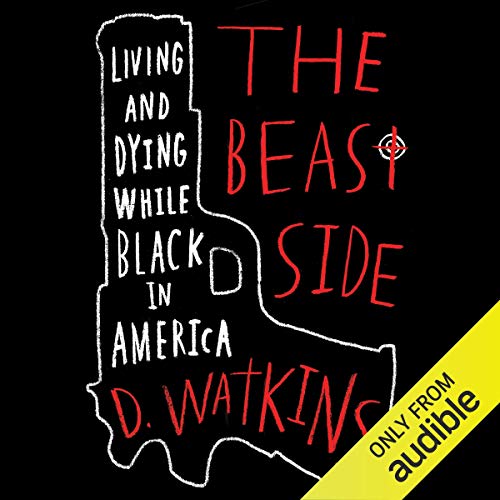
$0$7.99
Milton Friedman
By Jennifer Burns
Narrated by Nan McNamara
Length 18hr 52min 00s
4.7
Milton Friedman summary & excerpts
a monetary phenomenon, became a guiding philosophy as a detailed guide for policymakers. of low inflation, which persisted through 2020. for a more prosperous, free, and open world after the fall of communism in the 1990s. Friedman was born in 1912 and died in 2006, and thus his life tracks major events of the 20th century. He became an economist as a young man living through the Great Depression of the 1930s when he wrestled with fundamental questions of the age. Could capitalism guarantee broad prosperity? Or was it doomed to unremitting cycles of boom and bust? How could nations support those in need without choking off the dynamic energies of economic growth? Did liberal democracy have a future, or were ideals of classical liberalism, limited representative government, individual freedom, and unrestricted trade, relics of the past? Most economists of his generation answered these questions by looking to Keynesian economics, which called for greater state involvement in economic affairs, primarily through the taxing and spending powers of the federal government. But from the start, Friedman worried these solutions were economically unsustainable, and worse, endangered individual liberty. This was, of course, a shibboleth of the reactionary conservatives who hated Franklin D. Roosevelt. In contrast, Friedman supported critical aspects of the New Deal, particularly its early response to the economic crisis. And throughout his life, he remained preoccupied by the problems of the 1930s and 40s, national and global. As it did for many American Jews, the Holocaust loomed large in Friedman's imagination. Characteristically, Friedman took this awareness in an unusual direction, seeing antisemitism as a ready lesson in the dangers of the state. Among his great triumphs as an economist was authoring, with the indispensable Anna Schwartz, a reinterpretation of the Great Depression that remains essential for scholarship on the downturn. At the same time, Friedman spent the bulk of his career working to erect an alternative to the political landscape carved by the Great Depression, the New Deal, and then World War II. The decades after the war were a time of tremendous intellectual creativity for Friedman as he set out a new policy framework centered on rules-based management of the monetary system and the free play of price and contract within all other markets. Recognizing that a larger government was here to stay, Friedman nonetheless sought to limit its scope and reach. In some cases, he advocated outright repeal of established regulations, including rent control, price supports for agriculture, tariffs and import quotas, and controls on gas and oil production. In other areas of state involvement, Friedman often suggested that government functioned by dispersing financial resources directly to recipients so that retirees, unemployed workers, or low-income families could bypass bureaucracy and buy what they needed in the market. Alternatively, he proposed that state enterprises, like the U.S. Postal Service, face private competition, a reform eventually implemented piecemeal across the 1970s and 80s that led to the rise of FedEx, DHL, and other overnight mail services. Overall, Friedman encouraged the state to structure and harness market forces rather than intervene directly in their operation. Again and again, he suggested that the price system, the free interaction of buyers and sellers, could produce better social outcomes than the decisions of politicians and regulators. Yet, Friedman did not simply propose technical fixes to policy problems. He set his economic ideas within a broader philosophy of individual freedom that served as the moral grounding for his work. And he articulated a vision of the state that was starkly at odds with the one that emerged from the New Deal and the crisis of the 1930s. Today, scholars describe this intellectual approach with the broad moniker of neoliberalism and have traced its influence across every continent. By the final decades of the 20th century, Friedman's ideas helped a new political order emerge as countries abandoned top-down economic planning in favor of market-based approaches. The disintegration of Bretton Woods and the overthrow of Chile's socialist government were early markers along the path. The political successes of Ronald Reagan and Margaret Thatcher were culminating events.
How to listen to Milton Friedman for free
To listen to Milton Friedman audiobook for free, please follow these easy steps:
- Visit Audible's trial page
- Click on Try Audible Free
- Login to your Amazon account or create a new one
- Start your free tial (1 month for free, cancel anytime)
- Search for Milton Friedman in the search bar, click on Try for $0.00
- Start listening, and enjoy 2 audiobooks of your choice
P.S. You will still be able to keep and access these 2 audiobooks even after your trial ends.
Disclaimer: Some of the links on our website may be affiliate links, so we may earn affiliate commissions.
Milton Friedman sample
This sample is narrated by a real person
FAQ
Most asked questions about Milton Friedman
More from Jennifer Burns
The authors' 1 popular audiobooks
- Goddess of the Market
More from Nan McNamara
The narrators' 3 popular audiobooks
- The Paper Palace
- The Neurodiversity Edge
- Wounded Pastors
Playback Speed Calculator
Calculate Milton Friedman length with the given playback speed
Calculated Time
Saved Time
18:52:00
00:00:00





